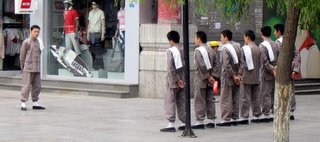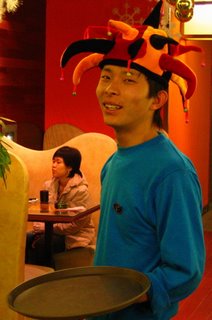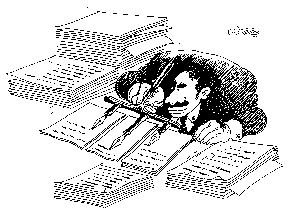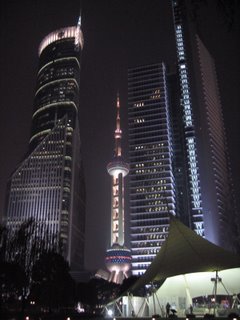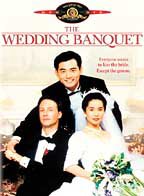
Desperate to start my next documentary after too many false starts, I went to www.bjboy.net, a popular Beijing gay website, to look for a gay angle.
I found this posting on their bulletin board:
“ [seeking marriage material] Wonderful Beijing lesbian ISO gay for nominal marriage
My girlfriend: Beijinger, 26 yrs old, 172 cm, master’s degree, financially independent, cultured, good temperament, with long hair, kind, easygoing. Seeks nominal marriage mainly to satisfy the parents. If both are direct and truthful we’d save a lot of time. Those who meet the following critera please contact us in order to form a fictitious marriage:
1. Accommodating and responsible, not effeminate (note: hope this is the correct translation for ‘不C’)
2. Height over 177 cm, 28-33 yrs old, bachelor’s degree (higher would be best)
3. Settled in Beijing with considerable financial means (mainly to appease the parents) and own apartment (which hopefully will be the residence of the nominal marriage)
4. Don’t want kids
5. Willing to get a fake marriage certificate
Those who reply please detail your background to save time for both of us. Thanks.
For contact: supergirl@888.com”
I found several similar postings but this one seemed the most direct. So I replied:
“Hi, I saw your posting on bjboys seeking a marriage candidate. I’m 31 yrs old, and just moved back from the US last year. I have two master’s degrees and suffer from similar dilemma as your girlfriend. I just started considering the possibility of nominal marriage. Hopefully we’ll get a chance to meet and talk in details. My mobile number is 13808888888.”
Ok, I lied about my age in order not to scare the young lesbian away. It felt more awful that I lied about my intention. I kept the email short and prayed for a face-to-face meeting so I could explain myself.
The matchmaker girlfriend emailed back promptly:
“Hi,
Very glad to have received your email. I think that for a nominal marriage to work, both sides need to have good characters and financial independence; more importantly, both need to think through the details of the marriage and reconcile differences. Only when the details are dealt with, can the parties maintain a good relationship and avoid blowing the cover of the nominal marriage. Let me lay out again our views on the fictitious marriage:
1. We are both 100% lesbian. We hope the other side is pure gay. Except for sex, we don’t shut guys out.
2. Generally when nominal marriage is discussed, people share the same view that it’s to deal with external pressure. That’s true. But the purpose to deal with external pressure is to protect our own privacy. We don’t want to exhibit our private lives to others. This determines that a nominal marriage must keep a certain distance from both families. For example, in order to avoid parents from both sides meddling with our nominal family, we can proactively visit the elders on a regular basis. My friend’s parents won’t interfere much with your marriage life. Neither will they live with you two. Hopefully your family is the same.
3. Nominal marriage is a partnership formed via tacit understanding and collaboration from both parties. It affects both sides. In other words, before any action either side should not only consider his/her own interest, but also the impact on the other side. Therefore, once in a nominal marriage, each side should consult the other side and think carefully before acting, if the action could affect the other side in any way.
4. About kid – Nominal marriage cannot provide a healthy nurturing environment for kids. Consequently we are not in favor of nominal families having kids.
5. About marriage certificate. It’s best not to get a certificate at all. First of all this avoids the hassles of listing the pre-marriage assets and having the list notarized. Secondly, even if we have the pre-marriage assets notarized, legally it’s still troublesome to deal with assets acquired during marriage. Thirdly, nowadays we don’t need our work units to provide certificates in order to marry, nobody would bother to ask to see the marriage certificate.
6. About housing. I’m not living with my girlfriend. I’m a graduate student. She works not far from home and lives with her parents right now. After wedding hopefully the groom’s place can be the home of this marriage, mainly to show for the parents. When free you two can go visit parents together, in order to avoid them going to your place. After graduation she and I will buy a place and live together.
My girlfriend is of the kind that has good figure and temperament, and can be both lively and quiet. Our relationship is very stable. Our circle is small, with few queer friends. We like sports and reading. We have a healthy and positive attitude towards life.
Hopefully we can take care of and love each other like brothers and sisters. Please share with us your thoughts. Thanks!
Sophia.”
I was both surprised at such detailed views on marriage (do the straight couples going to the altar generally plan this carefully?) and felt guilty at misleading this earnest couple. So I kept my reply curt:
“Hi Sophia, Thanks for your message. I haven’t thought through the marriage issue as carefully as you. I do agree with all of your points. It works as long as we make our parents happy. Your point on kids might be a problem. I’m sorry that I haven’t used Chinese so long that writing Chinese is a chore. Can we meet or talk over the phone in details?”
After exchanging text messages for two days, I finally talked to Sophia over the phone one night after her classes. I apologized as soon as we finished the greetings. I explained that I was writing a piece on gay/lesbian nominal marriages in China and that I answered that ad in order to talk to them (I couldn’t bring myself to mention the scariness of filming). I swore secrecy and beseeched for a chance to meet with them in person. I guess I naively thought that once we meet, somehow I could charm my way into becoming their friends and maybe 6 months later, they could let me film the wedding banquet.
Sophia listened attentively and sympathetically. She would talk to her girlfriend, she said, and would call me back. We bid farewell warmly over the phone.
And that was the last I heard from her, and the end of my could-be fake marriage.

